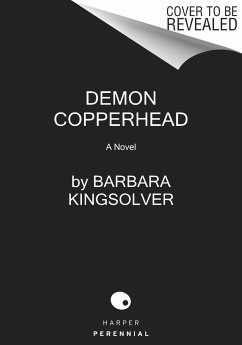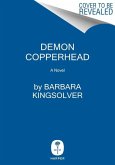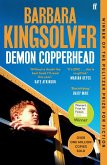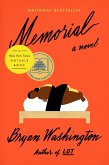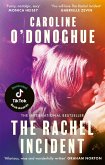WINNER OF THE PULITZER PRIZE - WINNER OF THE WOMEN'S PRIZE FOR FICTION
New York Times Readers' Pick: Top 100 Books of the 21st Century - An Oprah's Book Club Selection - An Instant New York Times Bestseller - An Instant Wall Street Journal Bestseller - A #1 Washington Post Bestseller - A New York Times "Ten Best Books of the Year"
"Demon is a voice for the ages-akin to Huck Finn or Holden Caulfield-only even more resilient." -Beth Macy, author of Dopesick
"May be the best novel of [the year]. . . . Equal parts hilarious and heartbreaking, this is the story of an irrepressible boy nobody wants, but readers will love." -Ron Charles, Washington Post
From the acclaimed author of The Poisonwood Bible and The Bean Trees and the recipient of the National Book Foundation's Medal for Distinguished Contribution to American Letters, a brilliant novel that enthralls, compels, and captures the heart as it evokes a young hero's unforgettable journey to maturity
Set in the mountains of southern Appalachia, Demon Copperhead is the story of a boy born to a teenaged single mother in a single-wide trailer, with no assets beyond his dead father's good looks and copper-colored hair, a caustic wit, and a fierce talent for survival. Relayed in his own unsparing voice, Demon braves the modern perils of foster care, child labor, derelict schools, athletic success, addiction, disastrous loves, and crushing losses. Through all of it, he reckons with his own invisibility in a popular culture where even the superheroes have abandoned rural people in favor of cities.
Many generations ago, Charles Dickens wrote David Copperfield from his experience as a survivor of institutional poverty and its damages to children in his society. Those problems have yet to be solved in ours. Dickens is not a prerequisite for readers of this novel, but he provided its inspiration. In transposing a Victorian epic novel to the contemporary American South, Barbara Kingsolver enlists Dickens' anger and compassion, and above all, his faith in the transformative powers of a good story. Demon Copperhead speaks for a new generation of lost boys, and all those born into beautiful, cursed places they can't imagine leaving behind.
New York Times Readers' Pick: Top 100 Books of the 21st Century - An Oprah's Book Club Selection - An Instant New York Times Bestseller - An Instant Wall Street Journal Bestseller - A #1 Washington Post Bestseller - A New York Times "Ten Best Books of the Year"
"Demon is a voice for the ages-akin to Huck Finn or Holden Caulfield-only even more resilient." -Beth Macy, author of Dopesick
"May be the best novel of [the year]. . . . Equal parts hilarious and heartbreaking, this is the story of an irrepressible boy nobody wants, but readers will love." -Ron Charles, Washington Post
From the acclaimed author of The Poisonwood Bible and The Bean Trees and the recipient of the National Book Foundation's Medal for Distinguished Contribution to American Letters, a brilliant novel that enthralls, compels, and captures the heart as it evokes a young hero's unforgettable journey to maturity
Set in the mountains of southern Appalachia, Demon Copperhead is the story of a boy born to a teenaged single mother in a single-wide trailer, with no assets beyond his dead father's good looks and copper-colored hair, a caustic wit, and a fierce talent for survival. Relayed in his own unsparing voice, Demon braves the modern perils of foster care, child labor, derelict schools, athletic success, addiction, disastrous loves, and crushing losses. Through all of it, he reckons with his own invisibility in a popular culture where even the superheroes have abandoned rural people in favor of cities.
Many generations ago, Charles Dickens wrote David Copperfield from his experience as a survivor of institutional poverty and its damages to children in his society. Those problems have yet to be solved in ours. Dickens is not a prerequisite for readers of this novel, but he provided its inspiration. In transposing a Victorian epic novel to the contemporary American South, Barbara Kingsolver enlists Dickens' anger and compassion, and above all, his faith in the transformative powers of a good story. Demon Copperhead speaks for a new generation of lost boys, and all those born into beautiful, cursed places they can't imagine leaving behind.
"Demon is a voice for the ages-akin to Huck Finn or Holden Caulfield-only even more resilient. I'm crazy about this book, which parses the epidemic in a beautiful and intimate new way. I think it's her best." - Beth Macy, author of Dopesick
"Brilliant. . . . A page turner and Kingsolver's best novel by far. . . . Kingsolver has some of Mark Twain in her, along with 21st-century gifts of her own. More than ever, she is our literary mirror and window. May this novel be widely read and championed." - Minneapolis Star-Tribune
"May be the best novel of 2022...Equal parts hilarious and heartbreaking, this is the story of an irrepressible boy nobody wants, but readers will love....You may be reminded of another orphaned boy slipping through the country's underbrush, just trying to stay out of trouble: Huck Finn. With Demon, Kingsolver has created an outcast equally reminiscent of Twain's masterpiece, speaking in the natural poetry of the American vernacular....Kingsolver's best demonstration yet of a novel's ability to simultaneously entertain and move and plead for reform."
- Ron Charles, Washington Post
"If you're familiar with the Charles Dickens classic, you'll follow the story's beats and chuckle....What keeps you turning the pages is the knowledge that Demon has a future. The novel ends on a note of hope...not every fate is decided by the circumstances of one's birth." - Associated Press
"There's really nothing like being immersed in a Kingsolver novel. . . . Damon [is Kingsolver's] bravest, most ambitious creation yet." - Los Angeles Times
"Kingsolver's capacious, ingenious, wrenching, and funny survivor's tale is a virtuoso present-day variation on Charles Dickens' David Copperfield. . . . Kingsolver's tour de force is a serpentine, hard-striking tale of profound dimension and resonance." - Booklist (Starred Review)
"An epic...brimming with vitality and outrage....the rare 560-page book you wish would never end."
- People "Book of the Week"
"With its bold reversals of fate and flamboyant cast, this is storytelling on a grand scale. . . . As Demon discovers, owning his story-every part of it-and finding a way to tell it is how he'll wrest some control over his life. And what a story it is: acute, impassioned, heartbreakingly evocative, told by a narrator who's a product of multiple failed systems, yes, but also of a deep rural landscape with its own sustaining traditions." - The Guardian
"Extraordinary. . . . Much like Douglas Stuart's Shuggie Bain or Charles Dickens' David Copperfield, Kingsolver's epic is narrated by a self-professed screwup with a heart of gold . . . chock-full of cinematic twists and turns. It's a book that demands we start paying attention to-and embracing-a long-ignored community and its people." - San Francisco Chronicle
"Kingsolver's new novel is her best in years. . . . The character of Damon is right up there with the best classic orphans of literatre. Believe me: you will root for this lost boy." - Pittsburgh Post-Gazette
"In Demon Copperhead...Kingsolver channels the voice of a disenfranchised boy lost in the failures of our social system. It's a testament to her storytelling mastery that this novel also illustrates how deeply intertwined our attitudes about nature are with our collective destiny. As always, her purpose is to make us think about the ways we all must look out for each other." - Arizona Republic
"Absorbing....Readers see the yearning for love and wells of compassion hidden beneath Demon's self-protective exterior.... Emotionally engaging is Demon's fierce attachment to his home ground, a place where he is known and supported, tested to the breaking point as the opiate epidemic engulfs it.... An angry, powerful book seething with love and outrage for a community too often stereotyped or ignored." - Kirkus Review (Starred Review)
"A deeply evocative story...Kingsolver's account of the opioid epidemic and its impact on the social fabric of Appalachia is drawn to heartbreaking effect. This is a powerful story, both brilliant in its many social messages regarding foster care, child hunger, and rural struggles, and breathless in its delivery." - Publishers Weekly (Starred Review)
"Kingsolver brings a notably different energy from her previous work to Demon Copperhead...through a tremendous narrative voice, one so sharp and fresh as to overwhelm the reader's senses....Demon's spirit comes through, and it is haunting. It's the reason the pages keep turning....Kingsolver has made this story her own, and what a joy it is to slip into this world and inhabit it, even with all its challenges." - BookPage
"Demon Copperhead is a propulsive reading experience, energetic and funny while still conveying Kingsolver's fury at the institutions that have let her community down." - Slate
"You'll be enthralled by [Demon's] voice, simultaneously hilarious and wise, as he illuminates life in rural America.....this is the ideal late-fall read to sink your teeth into."
- Real Simple
"A dazzling novel....a lyrical re-dreaming of Dickens's David Copperfield. The social injustices of Victorian England have been transplanted, with spellbinding success, to modern-day Appalachia...populated by America's rural white underclass and now ravaged by the opioid crisis...Kingsolver maintains an astonishing level of energy and intensity....This novel is surely a highpoint of Kingsolver's long career and a strong early candidate for next year's Booker Prize." - Times Literary Supplement
"A riveting, epic tale...[Kingsolver's] exquisite writing takes a wrenching story and makes it worthwhile... Kingsolver has given us a superb novel." - Christian Science Monitor
"A heartrending, probing and ultimately hopeful tale about a young boy's journey from devastation to survival....It's hard to ascertain which is more brilliant, Kingsolver's skill in modernizing Dickens' narrative or the voice she gives to the privations and adversities facing the land and people she so dearly loves." - Atlanta Journal-Constitution
"This is storytelling at its best. The voice rings true and so do the incidents." - Stephen King
"Brilliant. . . . A page turner and Kingsolver's best novel by far. . . . Kingsolver has some of Mark Twain in her, along with 21st-century gifts of her own. More than ever, she is our literary mirror and window. May this novel be widely read and championed." - Minneapolis Star-Tribune
"May be the best novel of 2022...Equal parts hilarious and heartbreaking, this is the story of an irrepressible boy nobody wants, but readers will love....You may be reminded of another orphaned boy slipping through the country's underbrush, just trying to stay out of trouble: Huck Finn. With Demon, Kingsolver has created an outcast equally reminiscent of Twain's masterpiece, speaking in the natural poetry of the American vernacular....Kingsolver's best demonstration yet of a novel's ability to simultaneously entertain and move and plead for reform."
- Ron Charles, Washington Post
"If you're familiar with the Charles Dickens classic, you'll follow the story's beats and chuckle....What keeps you turning the pages is the knowledge that Demon has a future. The novel ends on a note of hope...not every fate is decided by the circumstances of one's birth." - Associated Press
"There's really nothing like being immersed in a Kingsolver novel. . . . Damon [is Kingsolver's] bravest, most ambitious creation yet." - Los Angeles Times
"Kingsolver's capacious, ingenious, wrenching, and funny survivor's tale is a virtuoso present-day variation on Charles Dickens' David Copperfield. . . . Kingsolver's tour de force is a serpentine, hard-striking tale of profound dimension and resonance." - Booklist (Starred Review)
"An epic...brimming with vitality and outrage....the rare 560-page book you wish would never end."
- People "Book of the Week"
"With its bold reversals of fate and flamboyant cast, this is storytelling on a grand scale. . . . As Demon discovers, owning his story-every part of it-and finding a way to tell it is how he'll wrest some control over his life. And what a story it is: acute, impassioned, heartbreakingly evocative, told by a narrator who's a product of multiple failed systems, yes, but also of a deep rural landscape with its own sustaining traditions." - The Guardian
"Extraordinary. . . . Much like Douglas Stuart's Shuggie Bain or Charles Dickens' David Copperfield, Kingsolver's epic is narrated by a self-professed screwup with a heart of gold . . . chock-full of cinematic twists and turns. It's a book that demands we start paying attention to-and embracing-a long-ignored community and its people." - San Francisco Chronicle
"Kingsolver's new novel is her best in years. . . . The character of Damon is right up there with the best classic orphans of literatre. Believe me: you will root for this lost boy." - Pittsburgh Post-Gazette
"In Demon Copperhead...Kingsolver channels the voice of a disenfranchised boy lost in the failures of our social system. It's a testament to her storytelling mastery that this novel also illustrates how deeply intertwined our attitudes about nature are with our collective destiny. As always, her purpose is to make us think about the ways we all must look out for each other." - Arizona Republic
"Absorbing....Readers see the yearning for love and wells of compassion hidden beneath Demon's self-protective exterior.... Emotionally engaging is Demon's fierce attachment to his home ground, a place where he is known and supported, tested to the breaking point as the opiate epidemic engulfs it.... An angry, powerful book seething with love and outrage for a community too often stereotyped or ignored." - Kirkus Review (Starred Review)
"A deeply evocative story...Kingsolver's account of the opioid epidemic and its impact on the social fabric of Appalachia is drawn to heartbreaking effect. This is a powerful story, both brilliant in its many social messages regarding foster care, child hunger, and rural struggles, and breathless in its delivery." - Publishers Weekly (Starred Review)
"Kingsolver brings a notably different energy from her previous work to Demon Copperhead...through a tremendous narrative voice, one so sharp and fresh as to overwhelm the reader's senses....Demon's spirit comes through, and it is haunting. It's the reason the pages keep turning....Kingsolver has made this story her own, and what a joy it is to slip into this world and inhabit it, even with all its challenges." - BookPage
"Demon Copperhead is a propulsive reading experience, energetic and funny while still conveying Kingsolver's fury at the institutions that have let her community down." - Slate
"You'll be enthralled by [Demon's] voice, simultaneously hilarious and wise, as he illuminates life in rural America.....this is the ideal late-fall read to sink your teeth into."
- Real Simple
"A dazzling novel....a lyrical re-dreaming of Dickens's David Copperfield. The social injustices of Victorian England have been transplanted, with spellbinding success, to modern-day Appalachia...populated by America's rural white underclass and now ravaged by the opioid crisis...Kingsolver maintains an astonishing level of energy and intensity....This novel is surely a highpoint of Kingsolver's long career and a strong early candidate for next year's Booker Prize." - Times Literary Supplement
"A riveting, epic tale...[Kingsolver's] exquisite writing takes a wrenching story and makes it worthwhile... Kingsolver has given us a superb novel." - Christian Science Monitor
"A heartrending, probing and ultimately hopeful tale about a young boy's journey from devastation to survival....It's hard to ascertain which is more brilliant, Kingsolver's skill in modernizing Dickens' narrative or the voice she gives to the privations and adversities facing the land and people she so dearly loves." - Atlanta Journal-Constitution
"This is storytelling at its best. The voice rings true and so do the incidents." - Stephen King

Mit "Demon Copperhead" stellt sich Barbara Kingsolver in die Tradition von Dickens und Grass. Aber ist dieses Werk wirklich der große Roman über die Appalachen, den sie zu schreiben vorhatte?
Der Roman ist, soweit die Kategorie überhaupt noch irgendeine Aussagekraft hat, eine Sache des Bürgertums. Für die Lektüre, um vom Schreiben noch gar nicht zu sprechen, braucht es Zeit und Geld, die Möglichkeit des Rückzugs, innere und äußere Ruhe, ja, überhaupt eine Wertschätzung fürs Erzählen und die Sprache. Und das umso mehr, als der Griff zum Smartphone, unserem aufmerksamkeitsheischenden Dauerbegleiter, einen viel unmittelbareren Kick verspricht. Ohne eine gewisse Disziplin kann die Lektüre eines längeren Prosawerks, wenn es denn überhaupt zu ihr kommt, zu einer unangenehm zähen Angelegenheit werden.
Die Tatsache, dass sich die Gegenwartsliteratur in den vergangenen Jahren mit besonderer Intensität der westlichen Abstiegsgesellschaft zugewendet hat, wirft vor diesem Hintergrund Fragen auf. Sie betreffen nicht die Herkunft der Autoren, also inwiefern sie mit ihrer eigenen Vergangenheit "beglaubigen" können, was sie in ihren Büchern schildern. Dieser Logik sollte man sich, wenn man sich nicht über sie lustig machen will wie jüngst die großartige Filmposse "American Fiction", am besten ohnehin verweigern. Fraglich ist vielmehr das poetische Verfahren, der bemerkenswert ungebrochene Realismus dieser Bücher, die oft ganz oben auf den Listen der Literaturpreisjurys stehen: Seht, wie diese armen Leute hausen und leben, den Schmutz, die Ausweglosigkeit! Die soziale Distanz wird dadurch nicht verringert, im Gegenteil, man badet entweder in wohligem Mitgefühl oder in der behaglichen Gewissheit, den "Marginalisierten" endlich "eine Stimme" zu geben. Beides ist unangenehm.
Barbara Kingsolver zählt in den Vereinigten Staaten seit Jahrzehnten zu den prominentesten Autorinnen, während sie im deutschsprachigen Raum noch relativ unbekannt ist. Sie erzählt in ihrem Roman "Demon Copperhead", für den sie den Pulitzerpreis erhielt, von einer Jugend in den Neunziger- und frühen Zweitausenderjahren im südwestlichen Virginia. Hier, in den Appalachen, gab es früher einmal Bergbau, der für einen gewissen Wohlstand sorgte, bevor mit seiner Stilllegung der soziale Niedergang einsetzte. Soziales Elend, dysfunktionale Familien, Kriminalität und Drogen prägen seither das Leben. In der Presse, aus der im Roman zitiert wird, ist vom einem "Schandfleck" die Rede, einem "Schmutzstreifen", dessen Bewohner als "Hinterwäldler", als "Rednecks" bezeichnet werden.
In dieser Gegend wird Demon, Kingsolvers Held, in ein Dasein hineingeboren, dessen Stationen von Anfang an vorgezeichnet sind: eine Kindheit in Gewalt und Armut, der frühe Tod der "Junkie-Mom", wechselnde Sorgeberechtigte und Pflegefamilien, die den Jungen auf je eigene Weise ausbeuten, ja sogar körperlich an den Existenzrand bringen. Auf eine längere Phase relativer Stabilität, in der der Junge zum Star des Footballteams an seiner Highschool wird, folgt schließlich, nach einer heftigen Sportverletzung, der Totalabsturz. Demon beginnt, Tabletten zu schlucken, insbesondere das mit krimineller Energie vermarktete Schmerzmittel Oxycontin, und wird dadurch zu einem frühen Opfer der amerikanischen Opioid-Krise, deren reale katastrophale Folgen bis in unsere Gegenwart reichen, mit 100.000 Toten allein in den Jahren 2021/22.
Nur ganz langsam fängt sich Demon wieder, nach dem traurigen Krepieren der Freundin an einer Überdosis Morphin, der Verstrickung in beschaffungskriminelle Machenschaften und der zeitweisen Verlagerung des Wohnsitzes in einen heruntergekommenen Chevrolet Impala. Dabei hilft ihm nicht nur eine Reha-Maßnahme, sondern mehr noch sein Talent als Comiczeichner, dem er zunächst als Amateur im Netz nachgeht, bevor es ihm einen Buchvertrag und am Ende auch einigen Erfolg einbringt. So endet die Geschichte unerwartet optimistisch.
Erzählerisch tragen soll den Roman eine schlichte Schafft-er's-schafft-er's-nicht-Dynamik. Über 300 oder 400 Seiten hinweg mag das hinreichen, auf mehr als 800 verliert sie aber irgendwann an Wirkung. In seiner Sprache folgt das Buch einem beinharten Realismus, den Dirk van Gunsteren in ein überzeugendes Deutsch gebracht hat, gepaart mit einer kritischen Gesellschaftsanalyse, die man gerade in ihren (regional-)historischen Herleitungen, bis hin zur sogenannten Whiskey-Rebellion von 1774, mit Interesse liest. Alles in allem folgt Kingsolvers Buch gängigen Verfahren der internationalen Gegenwartsliteratur, wie sie beispielsweise in den viel gelesenen Romanen des schottisch-amerikanischen Schriftstellers Douglas Stuart, besonders in seinem mit dem Booker-Preis ausgezeichneten Debüt "Shuggie Bain" (F.A.Z. vom 24. November 2021), umgesetzt sind.
Der Gefahr, einen Wohlfühlroman für die Mittelklasse geschrieben zu haben, die sich durch einen mitleidig-schaudernden Blick in den sozialen Abgrund der eigenen, zwar angefochtenen, aber immer noch erheblichen Privilegien vergewissert - dieser Gefahr ist die erfahrene Autorin Barbara Kingsolver allerdings entgangen. So weist sie ihre Erzählung gleich zweifach als Erzählung aus und stellt ihren Realismus dadurch unter Vorbehalt: zum einen, indem sie ihren Roman als eine Charles-Dickens-Adaption ausgibt und ihren Protagonisten an einer Stelle sogar ausdrücklich von "David Copperfield" sprechen lässt; und zum anderen, indem sie die Geschichte auf einen therapeutischen Erzählakt zurückführt, auf eine literarische Hausaufgabe, die Demon von einer Psychologin in seiner Entzugseinrichtung gestellt worden ist. Ob Kingsolver Grass' "Blechtrommel" zur Kenntnis genommen hat? Realität und Fiktion, intertextuelle Beziehungen und überformende Erinnerung bilden in diesem Roman ein unauflösliches Ganzes.
Der "große Roman von Appalachia", den Kingsolver mit ihrem Buch vorlegen wollte, wie sie in einem Interview erklärte - er ist ein Roman im starken Wortsinne. Die Möglichkeit, ihn allzu rasch mit der Wirklichkeit kurzzuschließen, bietet er nicht, trotz der rauen, der Realität abgehörten Sprache des Ich-Erzählers. Dass ihr Buch in stilistischer, formaler und narrativer Hinsicht so reizlos ist, verwundert dabei nur auf den ersten Blick. Auch das ist wohl Teil des allgegenwärtigen "Midcults" (F.A.Z. vom 25. November 2022): die Leser im Gefühl zu wähnen, an der literarischen Hochkultur teilzuhaben (Dickens! Zitat! Selbstreflexivität!), ohne daraus irgendwelche, gar herausfordernde Konsequenzen abzuleiten. So demokratisch dieser Ansatz sein mag, so uncouragiert ist er zugleich. Dass es solche Romane geben darf und soll, sei gar nicht bestritten. Aber muss man sie gleich mit den allerhöchsten Ehrungen versehen? KAI SINA
Barbara Kingsolver: "Demon Copperhead". Roman.
Aus dem Englischen
von Dirk van Gunsteren. dtv, München 2024.
832 S., geb., 26,- Euro.
Alle Rechte vorbehalten. © Frankfurter Allgemeine Zeitung GmbH, Frankfurt am Main.

